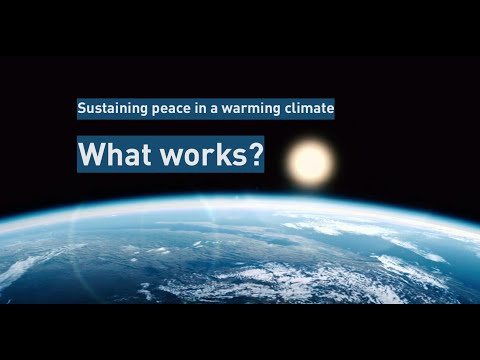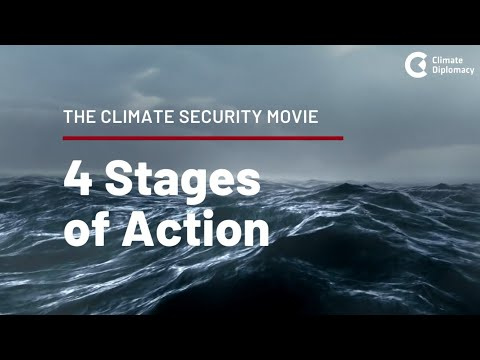Security, Fragility and Resilience

background
The climate crisis will aggravate fragile situations and may contribute to social upheaval and even violent conflict. When the impacts of climate change interact with other problems that fragile societies are already facing, compound risks emerge that can overburden weak states. The consequences of fragility may prevent those that are most vulnerable to climate change from adapting successfully to it, thus trapping them in a vicious cycle. Even seemingly stable states can be pushed towards fragility if the pressure is high enough or the shock is too great.
Already, the climate crisis is increasingly contributing to civil unrest and fragility, often by fuelling conflicts surrounding natural resources and livelihood insecurity. Climate change is increasingly recognised as a key factor in global insecurity and conflict. The link between climate change and conflict is indirect, non-linear and multi-dimensional, which makes it difficult to measure the extent to which climate factors trigger or influence conflict.
Whereas the exact nature of the links between climate change and conflict continues to be debated in academia, the most important question is not whether climate change causes conflict but how it affects all stages of the conflict cycle.
The links between climate change and security are complex and contextual.

Accordingly, it is essential to engage both local communities and government authorities in building resilience. Local actions require coordination and support in the form of training, equipment, information and infrastructure, as well as support and direction from national governments, and sometimes coordination with neighbouring governments. In situations of fragility and in other low-income countries, they may require international financial support.
Foreign policy actors play a key role in taking leadership on climate security and building resilience, increasing political will internationally and domestically, and in steering international action towards the adoption and implementation of resolutions and agreements.
FLAGSHIP REPORTS
The report “A New Climate for Peace,” commissioned by the G7 under the German Presidency in 2015, is the first landmark report to systematically identify compound climate-fragility risks which pose serious threats to the stability of states and societies in the decades ahead. It was the starting point for an entire G7 process of climate action, leading to numerous other outreach events and dialogues in the following years.
Explore findings and infographics from A New Climate for Peace here.
In 2019, adelphi, in cooperation with the German Federal Foreign Office and partners, published the report "Shoring up Stability," the first integrated climate fragility risk assessment for a specific region ever to be conducted. The report presents the findings of an intense two-year period of locally-led research across Cameroon, Chad, Niger and Nigeria. The Lake Chad Climate Fragility Risk Assessment underscores the universal need for risk-informed responses to complex crises if current development goals are ever to be met.
Explore findings and infographics from Shoring up Stability here.
WATCH
Sustaining peace in a warming climate - lessons learned
In this video, international experts share insights on what they have learned through fieldwork and research. The connection between climate change and building peace and resilience is becoming ever more evident, but conflict dynamics depend on specific regional contexts. Therefore, programmes need to address local drivers of conflict and climate change impacts jointly in order to cross sectoral lines and be more holistic.
The Climate Security Movie - 4 Stages of Action
When it comes to security, the impacts of climate change are particularly harmful. On top of creating unbearable natural conditions in already fragile social and environmental contexts, the conflict situations it aggravates are then more likely to roll back hard-won progress in peace and development. How can the international community best address this challenge?




